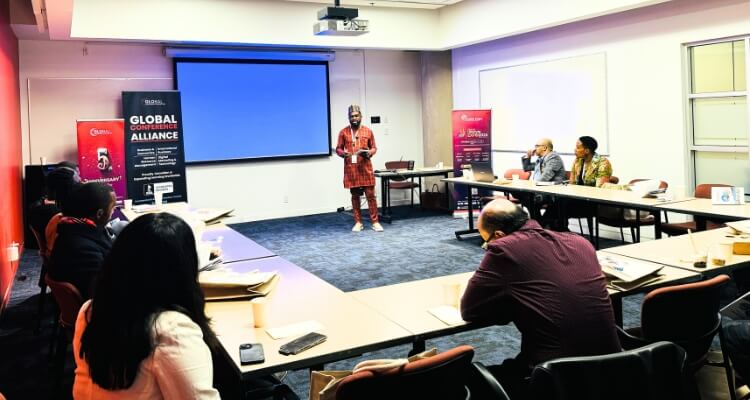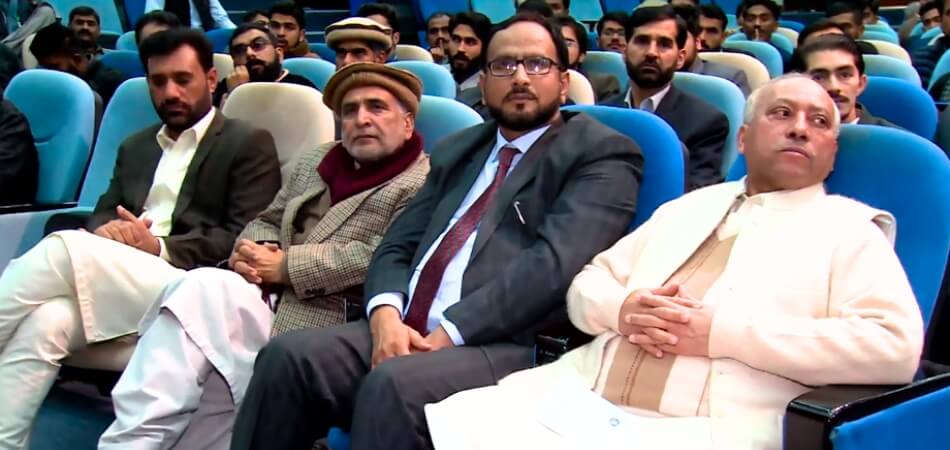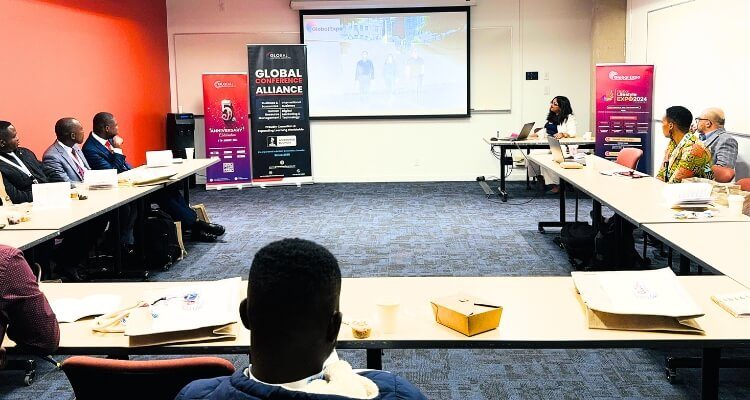It is possible to gain valuable insights into current autism research, inclusive practices, and support strategies by participating in an autism and disability studies conference in Canada. For professionals and students in Pakistan, this is an excellent opportunity to engage with experts and expand networks internationally. But, “How to attend the autism and disability studies conference in Canada from Pakistan?”
Begin by researching upcoming conferences, registering, and requesting an official invitation letter from the organizer to support your visa application. Then, arrange the necessary travel documents, accommodations, and a budget for the trip.
You can simplify your conference journey by following these steps. Read on for a detailed guide, and ways to make the most of your experience abroad.
What Is the Current State of The Autism and Disability Studies Conference in Canada?
Canada’s autism and disability studies conference actively explores new research and strategies to enhance support for individuals with disabilities. Leading experts share findings on inclusive practices, interventions, and policy advancements aimed at promoting accessibility and social equity. Attendees benefit from diverse sessions, workshops, and panel discussions, fostering knowledge exchange among professionals, researchers, and advocates.
Many participants attend from different countries, gaining insights while expanding their global networks in the autism and disability fields. Sessions are designed to support educators, therapists, and advocates in implementing real-world, inclusive strategies in their communities. The conference creates a supportive space where ideas flow freely, sparking collaborative solutions and innovative thinking.
Attending a Canadian autism and disability studies conference with an invitation letter can strengthen your visa application, simplifying travel plans. Preparation helps in getting to know conference themes, ensuring you make the most of each session. This experience allows attendees to bring back valuable knowledge, positively impacting autism support and disability awareness at home.
Who Gained Most by Attending an Autism and Disability Studies Conference?
Many individuals can benefit from attending an autism and disability studies conference. These conferences provide insights into the latest research, effective practices, and resources for those involved. Here’s a closer look at who gains the most from participating in such conferences:
Educators: Gaining Practical Strategies for Inclusion
Educators gain valuable insights into creating inclusive classrooms that support all students effectively. Conferences provide evidence-based strategies that foster social and academic growth for students with disabilities. Workshops guide educators in adapting curriculums to meet diverse learning needs. By attending, educators learn hands-on methods that improve accessibility and inclusion in their classrooms.
Therapists: Developing Skills and Knowledge
Therapists attending these conferences deepen their knowledge of autism and disability support techniques. They benefit from expert sessions focused on innovative therapies and interventions. Networking with peers and experts opens doors to collaborative opportunities. Obtaining insights from such conferences helps therapists offer improved services to their clients.
Parents and Families: Building Support Networks
Parents learn about effective support systems and approaches for their loved ones. Conferences provide a supportive space to connect with other families facing similar challenges.
They leave with practical tools and resources specific to individual family needs. Participating helps parents feel empowered, informed, and less isolated in their journey.
Policymakers: Gaining Insight into Inclusive Policies
Policymakers learn about essential updates on inclusive policies and their impact on society. They learn about the latest research supporting autism and disability-friendly practices. These conferences highlight actionable steps for creating more equitable policies. Policymakers leave better equipped to implement initiatives that drive positive change in their communities.
Researchers: Accessing Fresh Perspectives for Studies
Researchers attending the conference share their latest findings on autism and disability. They learn about the latest studies that influence practice and policy. Engaging with others in the field promotes collaboration on future research projects. Connections formed at the conference can lead to valuable partnerships and funding opportunities.
How to Attend the Autism and Disability Studies Conference in Canada from Pakistan?
A visit to an autism and disability studies conference in Canada from Pakistan offers professionals and advocates valuable insights and networking opportunities. This journey requires careful planning and preparation to ensure a smooth experience. Here’s a step-by-step process to help you make the most of this opportunity.
Step 1: Research Upcoming Conferences
Begin by researching reputable autism and disability studies conferences scheduled in Canada. Look for conferences that match your field and interests to maximize relevance. Confirm dates, venue details, and any deadlines for registration. Early planning gives you time to arrange travel and accommodations smoothly.
Step 2: Register for the Conference
Once you’ve selected a conference, complete registration as soon as possible. Check the website for fees, registration options, and member discounts. Early registration ensures you receive relevant updates and conference materials. Keep your registration confirmation, as it will be important for your visa application.
Step 3: Request an Invitation Letter
Most conferences provide invitation letters upon request, essential for your visa process. Reach out to the organizers after registering to request this document. Mention your intent to attend and provide any necessary registration details. Having this letter will support your visa application effectively.
Step 4: Apply for a Canadian Visa
After receiving your invitation letter, gather the documents required for your Canadian visa application. This typically includes proof of conference registration, an invitation letter, and financial documentation. Submit your visa application well in advance to avoid any delays. Monitor your application status and respond to any requests from the embassy.
Step 5: Plan Your Travel and Accommodation
Once your visa is approved, book flights and accommodation in Canada near the conference venue. Consider nearby hotels for convenient access to conference events and activities. Make sure to review your travel itinerary and local transport options. Planning ahead reduces last-minute stress and helps manage travel costs.
Step 6: Prepare to Maximize Your Experience
To maximize your experience, it’s essential to prepare well in advance. By participating in autism and disability conference in Canada, you gain opportunities to learn, connect, and gather valuable insights. Reviewing the conference agenda beforehand helps you prioritize the most relevant sessions. Actively engaging in discussions, networking, and workshops will make your connections more meaningful and impactful. This preparation ensures you benefit fully from your experience in Canada.
Conference Trip Budgeting: Key Costs to Consider
Planning a conference trip involves careful budgeting to manage costs effectively. Key expenses include travel, accommodation, meals, and other essentials. This guide outlines important costs to consider, helping you stay financially prepared.
Registration Fees
Most conferences require a registration fee, often the first cost to consider. Fees vary based on early or late registration deadlines. Some conferences offer discounts for students or early registrants. Budgeting for registration ensures you secure a spot at the event.
Travel Expenses
Travel is often one of the biggest costs when attending a conference abroad. Airfare prices fluctuate based on booking time and season. Consider additional transport like taxis or public transit for local travel. Planning early can help you find more affordable travel options.
Accommodation Costs
Accommodation prices differ widely depending on the hotel type and proximity to the venue. Booking near the conference can save on transportation costs. Some conferences partner with hotels to offer discounts for attendees. Research and reserve early to secure the best possible rate.
Daily Meals
Meal costs can add up quickly, especially in unfamiliar cities with higher dining expenses. Many conferences provide meals or refreshments during sessions. It’s wise to budget for meals outside of provided conference times. Research nearby restaurants to find budget-friendly options for each day.
Miscellaneous Expenses
Miscellaneous expenses include items like Wi-Fi access, souvenirs, or local sightseeing. Unexpected costs, such as emergency items, can also arise during travel. Setting aside funds for these ensures you’re prepared for extra expenses. Planning for miscellaneous costs helps you enjoy your trip stress-free.
Best Way to Maximize Your Conference Experience in Canada
Maximizing your conference experience in Canada requires thoughtful planning and active engagement. By preparing in advance to attend autism and disability conference, you can make the most of sessions and networking. Here are key strategies to enrich your conference journey:
- Review the Conference Agenda: Familiarize yourself with the agenda to prioritize sessions aligning with your interests. Knowing the schedule helps you manage time effectively.
- Set Clear Goals: Define what you want to achieve, like gaining insights or building connections. Goal-setting keeps you focused and makes each session purposeful.
- Engage in Networking Opportunities: Conferences are prime spaces for meeting professionals and like-minded individuals. Initiate conversations to build lasting connections and share knowledge.
- Take Notes on Key Insights: Capture important points during each session to retain useful information. Good notes allow for later review, enhancing knowledge retention.
- Participate in Workshops and Discussions: Actively participating in discussions enriches your learning experience and deepens understanding. Workshops provide practical skills valuable in professional settings.
- Visit Exhibition Booths: Many conferences feature exhibitor booths showcasing products and resources. Visiting them offers insight into tools that support autism and disability services.
- Join Social Events: Social events offer relaxed environments to connect with speakers and attendees. Building relationships here can lead to valuable future collaborations.
- Follow Up Post-Conference: Connect on LinkedIn or send a follow-up email to new contacts. Maintaining contact helps solidify the connections made during the event.
Frequently Asked Questions
This section addresses common questions and concerns regarding attending the autism and disability studies conference in Canada from Pakistan. Each question is designed to help you navigate the process more effectively and ensure a smooth experience.
Is There an Age Limit for Attending the Conference?
Most conferences do not impose age limits on attendees. However, specific events may have requirements for participants, particularly for students or young professionals. Always verify the eligibility criteria on the conference website to ensure compliance.
How Can I Stay Updated on Conference Changes?
Stay updated on any changes by regularly checking the conference website and subscribing to email notifications. Follow the conference’s social media channels for real-time updates and announcements. Having the latest information can help you adjust your plans accordingly.
Can I Volunteer at The Conference?
Many conferences welcome volunteers to assist with various tasks during the event. Volunteering can be a great way to gain experience, network, and reduce registration costs. Contact the conference organizers in advance to inquire about volunteer opportunities.
What Should I Do if I Encounter Visa Issues?
If you face visa issues, immediately contact the Canadian embassy or consulate for guidance. Make sure you have all the necessary documents, including your invitation letter and registration details. Starting this process early can help resolve any issues before the conference.
How Do I Access Conference Materials After the Event?
Most conferences provide access to materials, such as session recordings and presentations, post-event. Check the conference website for links or download options available for attendees. Having these resources allows you to revisit sessions and deepen your understanding after returning home.
Conclusion
Getting involved in an autism and disability studies conference in Canada from Pakistan is a valuable opportunity for personal and professional growth. By knowing how to attend the autism and disability studies conference in Canada from Pakistan, you can simplify the process and make your journey successful. Research conferences, register early, and obtain an official invitation letter to support your visa application.
Careful budgeting for travel, accommodation, and meals further ensures a smooth trip, while preparing a clear agenda helps you maximize learning and networking opportunities. This well-planned approach empowers you to gain meaningful insights, build global connections, and bring impactful knowledge back to your community.








